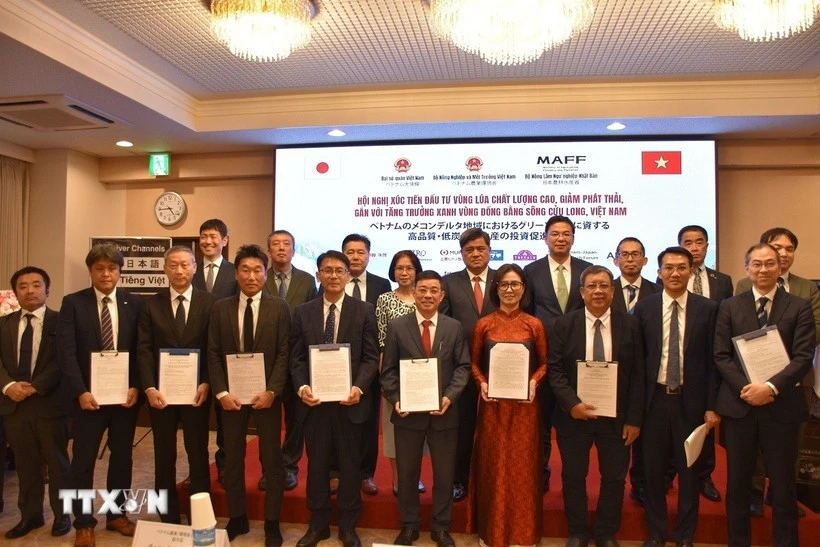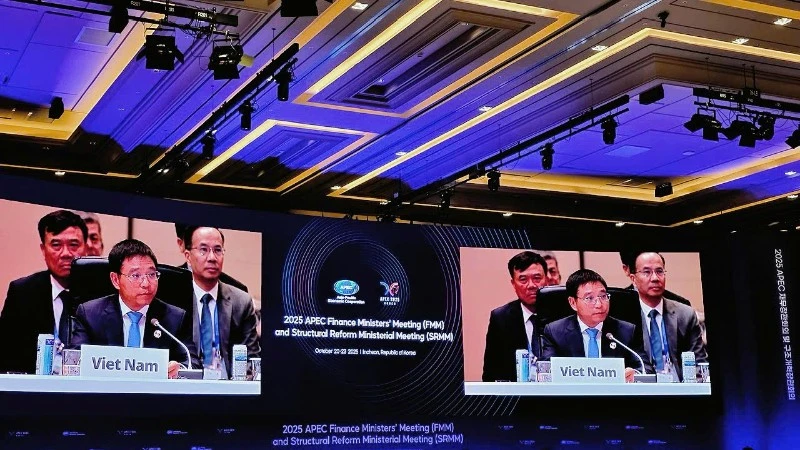The Vietnamese games market witnessed strong growth in 2025, with expected revenue reaching or exceeding 430 million USD, and it is expected to earn nearly 1.7 billion USD by the end of the year. The Vietnamese games industry also affirmed its position as the world's top player in mobile game downloads (game applications on mobile phone), showing great potential for future development. Many international experts assess that Viet Nam is a "rising star" in the Asian games industry.
Enterprises “run out of breath” in their home field
With a lot of experience in connecting domestic and international games enterprises, Hai Trinh, Chief Operations Officer (COO) of GameGeek Asia, said that the Vietnamese games industry has a very enthusiastic, passionate, and creative games development team, but they lack a good environment to develop and contribute to breakthroughs in the industry.
As the main driving force for the development of the game industry, the number of game enterprises and studios in Viet Nam is increasing, meeting the development needs of the market. However, many experts believe that Vietnamese games are still struggling with the problem of increasing "quantity" without ensuring "quality".
Data shows that Viet Nam currently has 240 licensed games enterprises, but only about 50 have active products. Of the 659 G1 games licensed from 2020 to 2024, 86.5% are of foreign origin, mainly from China (81%).
The total revenue of the gaming industry in 2024 was estimated at 12,700 billion VND, up 8-10% compared to 2023, with large enterprises such as VNG, VTC, Garena, and Funtap. However, the majority of revenue comes from publishing imported games, therefore, profits mainly flow abroad. In the top 10 mobile games with the highest revenue in 2024, up to seven games were provided by foreign publishers.
Viet Nam has about 2,000 game production studios, but most of them register legal entities abroad (such as Singapore) to take advantage of open policies. Vietnamese enterprises producing and publishing games do not enjoy the 10% corporate income tax incentive and are taxed twice on revenue from abroad.
Looking at this picture, Phan Thanh Duy, lecturer of Game Design, Faculty of Communication and Design, RMIT University Viet Nam, said that managing the games industry is one of the most pressing issues in the country today. There are many reasons why businesses and game studios choose to register abroad, especially in Singapore. One of the objective reasons is that business registration procedures in Viet Nam are still very cumbersome.
“Another common problem is the imposition of taxes in the mobile games industry. It is impossible to collect consumption tax from foreign app stores, the government will collect taxes from game publishers. This means that small mobile game companies registering in Viet Nam not only do not receive tax support but must also pay two types of taxes, to the government and to the application publisher partner. This greatly reduces the profits of the business,” Duy analysed.
According to Duy, this also explains why most young entrepreneurs choose the mobile game field to start up. And “when revenue and profit are not guaranteed, the immediate priority of enterprises is survival, but developing the industry or creating an environment for talents to develop is probably not something they have thought about.”
NT, the owner of a mobile game production enterprise, said that the Vietnamese mobile games industry began to develop strongly after the “push” from the resounding success of the game Flappy Bird (author Nguyen Ha Dong) in 2014. Up to now, the whole country has about 10,000 people participating in this field, mainly concentrated in Ha Noi and Ho Chi Minh City.
According to NT, the biggest advantage of Vietnamese mobile game enterprises is cheap labour, with the salary is usually only about 20-30% compared to countries with a more developed games industry. However, the big limitation is that there is almost no support policy, enterprises have to "swim" on their own. Mobile games production is not recognised by Viet Nam as a creative industry, it is considered purely as entertainment. This leads to the fact that most domestic enterprises operate in a "guerrilla" style, meaning that they only produce casual games (simple, time killing entertainment games,) or puzzle games based on the gameplay of famous games. They are mass-produced at low cost, enterprises rely on luck when a certain game suddenly "heats up", is downloaded by users and they pay a lot of money to play.
NT emphasised that despite rapid development and gaining a large revenue compared to many other production fields, Vietnamese mobile games are still too small in the world market. Games are made but not released domestically, mainly aimed at fertile lands (where there are large communities of users with the habit of depositing money into games) such as the US, Japan, Republic of Korea, and Europe. In the Chinese market alone, Vietnamese enterprises cannot "enter" due to strict protection policies and cannot compete with its strong, professional game development force.

Training human resources, removing barriers
Experts affirm that human resources are the most important factor to ensure the in-depth growth of the Vietnamese game industry in the coming time.
Phan Thanh Duy believes that when focusing too much on buying and releasing games, Viet Nam will lack positions for game development and lack an environment to help the human resources improve their qualifications and experience. Due to the lack of qualified, professionally trained, and experienced human resources regarding the development of large game projects, businesses often have to hire foreign experts or train staff by themselves.
To develop the game industry in the direction of increasing quality, he suggests that the first thing is to pay attention to the issues of systematic training and education for the next generation. It needs to create conditions for them to be trained both domestically and abroad and create an attractive environment for international students to return home to contribute.
According to Hai Trinh, the fact that games businesses choose foreign countries to register their business can cause us to waste resources from billions of dollars in revenue from game production. “Creativity in our country's games industry is still very weak, due to relying too much on copying products on the market. Objectively, we do not have products with Vietnamese identity in the world. Most businesses are still pursuing simple mobile games, with little interest in computer products or high-quality "blockbuster" games products, because they do not have enough production resources,” Hai Trinh assessed.
“Viet Nam currently does not have a mechanism to encourage the games industry, the legal corridor and support are still shared together with other industries, and many regulations are even disadvantageous, causing difficulties for many game industry businesses,” said Hai Trinh.
In the past two years, human resource training for the game industry at some universities has also received initial attention. In the future, if they work closely with businesses, the Vietnamese game industry can form a rich and talented workforce. In addition to promoting training programs interspersed with dialogue activities between universities and recruiting businesses, the state also needs a fund to support game businesses to introduce Vietnamese culture to the world.
The goal of the Vietnamese games industry is to achieve revenue of 1 billion USD by 2030, with 30% of released games originating from Viet Nam, reflecting the expectations of a country with 54 million gamers and a culture with thousands-years history. To implement this goal, there needs to be a fundamental change in thinking and approach.
Completion of the legal system and strong support policies are prerequisites. The government needs to issue a special preferential legal framework for businesses producing educational, cultural, and historical games with a preferential tax rate of 10% instead of the current situation of double taxation. Regulations on virtual currencies, digital assets, and blockchain gaming need to be clarified to create a favourable legal corridor for innovation.
Viet Nam has a diverse culture, a long history and a rich heritage system. That could be an abundant resource for the gaming industry to exploit. Integrating Vietnamese culture into games will both create a unique identity, increase competitiveness, and contribute to preserving and spreading traditional values. In addition, it is also necessary to consider integrating cultural games into the education system.
To do this, great support is needed from the state, in which cultural agencies play the main role in providing authentic cultural and historical content to game makers. It also needs to have support policies and financial and communication incentives for Vietnamese cultural games projects.
















